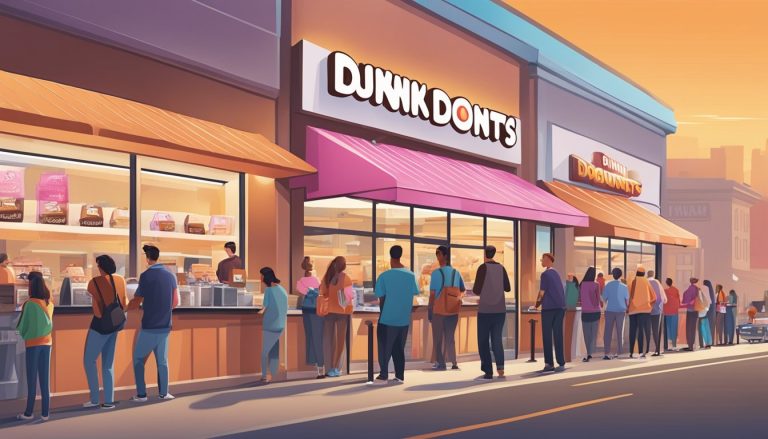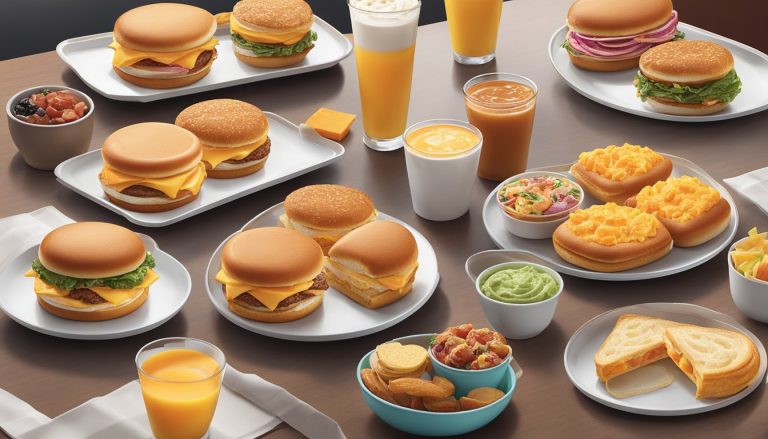Dunkin’ Donuts, a beloved coffee chain, has undergone significant changes since its inception. The company’s evolution is particularly evident in its coffee machines, which have played a crucial role in shaping the brand’s identity and success.
Dunkin’s coffee machines have evolved from simple drip brewers to sophisticated, high-tech equipment capable of producing a wide variety of coffee beverages. This technological advancement has allowed Dunkin’ to expand its menu offerings and cater to changing consumer preferences. The company now utilizes state-of-the-art espresso machines, cold brew systems, and automated brewing technology to ensure consistent quality across its locations.
The progression of Dunkin’s coffee machines reflects broader industry trends towards automation and customization. These advancements have enabled Dunkin’ to maintain its position as a leading coffee provider while adapting to the growing demand for specialty coffee drinks. As Dunkin’ continues to innovate, its coffee machines will likely remain at the forefront of its strategy to deliver high-quality beverages to customers worldwide.
Historical Insights into Dunkin’s Coffee Machines
Dunkin’s coffee machines have evolved significantly since the company’s founding in 1948. These changes reflect broader trends in coffee brewing technology and consumer preferences.
Initial Coffee Brewing Methods
In its early days, Dunkin’ relied on simple drip coffee makers and percolators. These machines brewed coffee in large batches, ensuring a steady supply for customers. The focus was on producing a consistent, familiar taste that became synonymous with the Dunkin’ brand.
As demand grew, the company introduced larger commercial brewers. These machines could produce higher volumes of coffee more efficiently, meeting the needs of busy stores.
Introduction of Espresso Machines
In the 1990s, Dunkin’ began incorporating espresso machines into its stores. This move allowed the chain to offer cappuccinos and lattes, expanding its menu beyond traditional drip coffee.
The espresso machines were typically semi-automatic, requiring some barista skill to operate. They featured steam wands for milk frothing and separate groupheads for extracting espresso shots.
Shift Toward Automation
As Dunkin’ expanded rapidly in the 2000s, the company prioritized speed and consistency. This led to the adoption of more automated coffee machines.
Newer models featured push-button operation for espresso drinks, reducing training requirements and ensuring uniform quality. Some machines could grind beans on demand, preserving freshness.
Dunkin’ also introduced specialized equipment for iced coffee and cold brew, reflecting changing consumer preferences. These machines allowed for efficient production of large quantities of cold beverages.
Technological Advancements and Coffee Innovation
Dunkin’ has embraced cutting-edge technology and innovative brewing methods to enhance its coffee offerings. These advancements have revolutionized the company’s ability to deliver consistent, high-quality beverages while expanding its menu options.
Development of Proprietary Machines
Dunkin’ invested heavily in developing proprietary coffee machines tailored to its specific needs. These custom-built machines ensure precise temperature control and optimal extraction times for each brew. The company’s automated espresso machines can produce shots with consistent strength and flavor profiles.
Standardized equipment across locations helps maintain uniform taste and quality. Dunkin’ regularly updates its machines to incorporate the latest brewing technologies. Recent upgrades have focused on improving energy efficiency and reducing waste.
Adoption of Smart Technology
Smart technology integration has streamlined Dunkin’s coffee-making processes. Digital displays and touchscreen interfaces allow baristas to easily select and customize drink orders. Connected machines can be monitored remotely for maintenance needs and performance tracking.
Some Dunkin’ locations now feature self-serve kiosks where customers can place orders directly. Mobile app integration enables customers to pre-order drinks for quick pickup. The company is exploring AI-powered systems to predict customer preferences and optimize inventory management.
Customization and Beverage Innovation
Dunkin’s advanced machines enable a wide range of customization options. Customers can adjust factors like coffee strength, milk temperature, and flavor shot intensity. The company regularly introduces limited-time seasonal beverages to keep its menu fresh and exciting.
Cold brew and nitro cold brew systems have been installed in many locations. Dunkin’ has expanded beyond traditional coffee drinks to offer options like frozen coffee, energy drinks, and tea-based beverages. The company continues to experiment with new ingredients and brewing methods to create unique coffee creations.
Expanding Dunkin’s Coffee Experience

Dunkin’ has evolved beyond its donut shop roots to become a global coffee powerhouse. The company has introduced innovative flavors, enhanced customer experiences, and leveraged technology to meet changing consumer demands.
Introduction of Global Inspired Flavors
Dunkin’ expanded its coffee offerings with internationally-inspired flavors to appeal to diverse tastes. The company introduced options like Brazilian Bold, Colombian Supremo, and French Vanilla to cater to coffee enthusiasts seeking global experiences.
These new blends complemented Dunkin’s classic coffee lineup, providing customers with a wider range of choices. The global flavors also helped Dunkin’ compete with specialty coffee shops and attract a more discerning clientele.
To further differentiate itself, Dunkin’ launched seasonal and limited-time offerings. These included pumpkin spice lattes, peppermint mochas, and other trendy flavors that kept the menu fresh and exciting.
Enhancing the Customer Experience
Dunkin’ invested in improving its in-store ambiance to create a more inviting atmosphere for coffee drinkers. The company redesigned many locations with modern decor, comfortable seating, and Wi-Fi access.
Barista training programs were implemented to ensure consistent quality across all locations. This focus on skill development helped Dunkin’ deliver a superior coffee experience to its customers.
Digital menu boards were installed in many stores, allowing for easy updates and promotional displays. These boards improved order accuracy and reduced wait times, enhancing overall customer satisfaction.
Mobile Ordering and Drive-Thru Innovations
Dunkin’ embraced mobile technology to streamline the ordering process. The company launched a user-friendly mobile app that allows customers to place orders ahead of time and skip the line.
The app also features a loyalty program, rewarding frequent customers with points and personalized offers. This digital approach has helped Dunkin’ build brand loyalty and increase customer engagement.
Drive-thru service received significant upgrades, including dedicated lanes for mobile order pickup. These improvements reduced wait times and improved traffic flow, especially during peak hours.
Dunkin’ also tested AI-powered voice ordering systems at select drive-thru locations. This technology aims to enhance order accuracy and speed up service, further improving the customer experience.
Dunkin’s Brand Evolution and Marketing

Dunkin’ has undergone significant brand transformation and executed innovative marketing strategies to maintain its position as a leading coffee and quick-service restaurant chain. The company’s evolution reflects changing consumer preferences and market dynamics.
From Dunkin’ Donuts to Dunkin’
In 2018, Dunkin’ Donuts rebranded to simply “Dunkin'”. This change aimed to emphasize the brand’s expanded beverage offerings beyond donuts.
The new name reflected Dunkin’s commitment to serving a wider range of products, including coffee, breakfast sandwiches, and other food items. This rebranding effort also included updating store designs and packaging to create a more modern, streamlined look.
The simplified name helped Dunkin’ appeal to health-conscious consumers who might have been deterred by the focus on donuts. It also positioned the brand as a beverage-led, on-the-go focused chain.
Marketing Campaigns and America Runs on Dunkin’
Dunkin’s marketing campaigns have played a crucial role in shaping its brand identity. The iconic slogan “America Runs on Dunkin'” was introduced in 2006 and remains a cornerstone of the company’s marketing efforts.
This tagline effectively communicates Dunkin’s role in fueling Americans’ busy lifestyles with coffee and quick meals. The campaign has featured in various media, including TV commercials, billboards, and social media content.
Dunkin’ has also embraced digital marketing strategies, leveraging social media platforms and mobile apps to engage customers and drive loyalty. The Dunkin’ mobile app offers rewards, mobile ordering, and personalized promotions.
Partnerships and Expansion
Dunkin’ has pursued strategic partnerships to expand its reach and product offerings. The company has collaborated with consumer packaged goods companies to launch ready-to-drink coffee beverages and at-home coffee products.
A notable partnership with Coca-Cola resulted in the introduction of bottled iced coffee drinks sold in retail stores. This move allowed Dunkin’ to compete in the growing ready-to-drink coffee market.
Internationally, Dunkin’ has expanded through franchising agreements. The brand has adapted its menu and marketing strategies to suit local tastes in different countries, while maintaining its core identity.
Sustainability and Corporate Responsibility

Dunkin’ has embraced sustainability and corporate responsibility as key pillars of its business strategy. The company has set ambitious goals to source coffee responsibly and reduce environmental impact.
Investing in Eco-friendly Practices
Dunkin’ has committed to sourcing 100% of its coffee responsibly by 2025. This initiative, called the Dunkin’ Drive-To Sustainability Program, focuses on verification, partnerships, and improvement.
The company partnered with Enveritas, a non-profit organization, to audit its coffee supply chain and ensure compliance with sustainability standards. This collaboration aims to address poverty among smallholder coffee growers.
Dunkin’ is also working to improve its environmental footprint in stores. The company has invested in energy-efficient equipment and explored recyclable packaging options for its products.
Community Engagement and Partnerships
Dunkin’ engages with local communities through various initiatives. The company supports organizations that address food insecurity and provides disaster relief assistance.
Partnerships play a crucial role in Dunkin’s sustainability efforts. The company collaborates with like-minded organizations to support coffee-growing regions and improve farmers’ livelihoods.
Dunkin’ also works with its franchisees to implement sustainable practices at the store level. This includes energy conservation measures and waste reduction programs.
The company regularly publishes sustainability reports to track progress and maintain transparency with stakeholders. These reports outline Dunkin’s ongoing commitment to creating positive impacts for customers and communities worldwide.
Impact of Dunkin’s Coffee Machines on Menu Diversity

Dunkin’s investment in advanced coffee machines has significantly expanded their menu offerings and customer options. The improved technology has enabled a wider range of beverages and complementary food items.
Influence on Beverage Selection
Dunkin’s upgraded coffee machines have revolutionized their drink menu. The company now offers an extensive selection of espresso-based drinks, including lattes, cappuccinos, and Americanos. These machines allow for customization of drink strength, size, and milk options. Cold brew coffee has also been introduced, catering to the growing demand for iced beverages.
The new equipment supports the creation of specialty drinks like macchiatos and flat whites. This diversification has helped Dunkin’ compete with other coffee chains and attract a broader customer base. The machines’ consistency ensures that customers can expect the same quality across different locations.
Introduction of Food Items and Breakfast Options
The focus on improved coffee machines has indirectly influenced Dunkin’s food menu. As beverage sales increased, the company expanded its breakfast offerings to complement the drinks. Breakfast sandwiches became a staple, featuring various combinations of eggs, cheese, and meats on bagels, English muffins, or croissants.
Beyond traditional donuts, Dunkin’ introduced healthier options like oatmeal and wraps. The expanded drink menu also prompted the development of food pairings, such as savory wake-up wraps to go with espresso drinks. This synergy between beverages and food has strengthened Dunkin’s position as a quick-service restaurant for both morning and all-day dining.
Future Prospects for Dunkin’s Coffee Equipment

Dunkin’ is poised to revolutionize its coffee equipment in the coming years. The company aims to enhance beverage quality, streamline operations, and improve the customer experience through technological advancements.
Next-Generation Coffee Machines
Dunkin’ is exploring cutting-edge brewing technologies to elevate its coffee offerings. These may include:
• Precision temperature control systems
• Automated grinding and tamping mechanisms
• Smart dispensing units with customization options
The company is also considering machines with built-in flavor infusion capabilities. This would allow for a wider range of specialty drinks without increasing preparation time.
Dunkin’ is investing in equipment that can handle higher volumes during peak hours. Advanced queue management systems could help reduce wait times and improve efficiency.
Potential Areas for Innovation
Mobile integration is a key focus for Dunkin’s future equipment. The company is developing machines that can connect to smartphones, allowing customers to:
• Place orders remotely
• Customize drinks through an app
• Receive notifications when orders are ready
Sustainability is another area of innovation. Dunkin’ is researching eco-friendly coffee machines that:
- Use less energy and water
- Incorporate recyclable materials
- Minimize waste production
The company is also exploring AI-powered equipment that can predict maintenance needs and optimize brewing parameters based on customer preferences and environmental factors.




